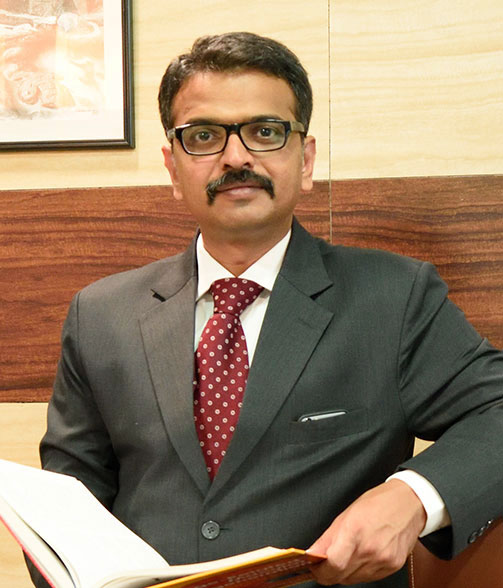
Consultant Ophthalmologist and Vitero-Retina Surgeon Uveitis and Intraocular and Inflammation Specialist.
Save Sight Centre is an establishment by Dr. Rajeev Jain. We had taken care of 2,60,000+ eyes in the duration of past 12 years. He completed his M.B.B.S from Maulana Azad Medical College (MAMC), Delhi. Subsequently, he underwent training for general Ophthalmology surgical procedures at Guru Nanak Eye Centre which is affiliated with MAMC, LNJP and GB Pant hospitals; here his thesis focused on Age Related Macular Degeneration (ARMD).
In 2007, he was named professor of clinical studies at his university, University of Adelaide in Australia. On his return to New Delhi India in 2009 he held this title until 2009.
He is widely respected, having published many scientific papers in international and national journals of science as well as book chapters for books on Vitreoretina diseases such as Wills Eye Guide for Uveitis. Furthermore, he has spoken at both domestic and international gatherings of scientists.
Dr Rajeev Jain specializes in Uveitis and medical and surgical retinal diseases including macular degeneration caused by age; diabetic retinal vein obstruction; tears/disconnections to retina macular hole/epiretinal membrane problems etc.
As Director of Save Sight Centre, I am delighted to talk about the significance of eye health and proper eye care for both individuals and communities alike. I have seen how preserving vision has made an amazing difference in many lives over time.
At our medical services, we emphasize the significance of preventive measures and lifestyle choices to promote long-term eye health. Regular eye exams, eating a balanced diet rich in vitamins and antioxidants, protecting eyes from UV radiation exposure and practicing good eye hygiene are all integral aspects of maintaining vision health.
By engaging in our blog and educational initiatives, our aim is to raise awareness about eye conditions that affect many, dispel myths surrounding eye health, and provide practical tips for maintaining healthy eyes. Knowledge empowers, so equipping individuals with information allows them to make more informed decisions regarding their eye care needs.
I invite you to explore and engage with our blog and content. Together, we can work towards a future in which all individuals have access to quality eye care, enjoying clear vision. Remember: your eyes deserve our utmost care and consideration!
Wishing you good health and vibrant vision,
Dr. Rajeev JainTop ten Tips to Safeguard Eyesight from Save Sight Centre.
Follow our top ten tips to protect your eyesight and stave off future eye issues. Even if you can't manage all ten, at least make a point of visiting an ophthalmologist regularly for regular exams and testing.
Studies demonstrate that early intervention can prevent over half of sight loss. Although it should be scheduled at least annually, one out of every four of us fails to do this.
Copyright © 2025 | Save Sight Centre | All Rights Reserved.